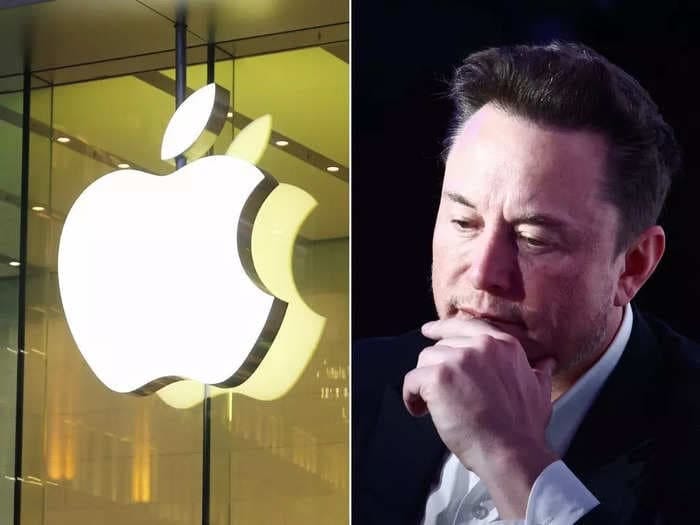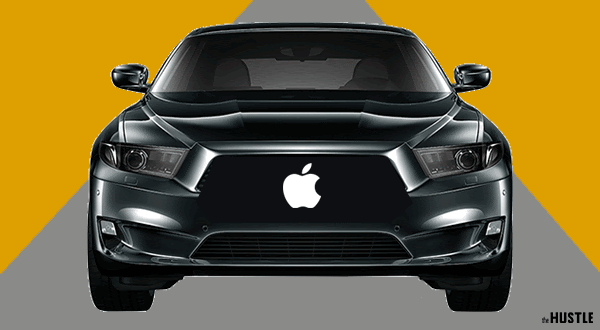AI: Apple Car, lessons learned
...key takeaways for the broader AI road ahead
A day later on this Leap Year day, there’s a plethora of post-mortem pieces and comments on Apple’s decade long self-driving car project Titan. Lots of discussion of it’s dramatic shutdown, as reported this week by Bloomberg’s Mark Gurman. The schadenfreude is thick in the air.
Elon Musk has been vigorously commenting on the difficulties of building cars at scale on X/Twitter:
“The natural state of a car company is dead.”
I’m focused on this whole drama again today, because as I mentioned yesterday, the specifics of Apple’s twists and turns here are important learnings in the context of the current AI Tech Wave.
As companies globally rush to invest hundreds of billions in AI, the lessons from the race to self-driving cars, are very potent and real. And Apple is just the latest big tech case study in the field. A key reason of course, as I’ve stated in earlier pieces, if AI is potentially taking another decade to be real in self-driving cars, after over a decade and half of intense industry-wide investments, then it portends a similar fate for many areas of AI application going forward.
Broader AI is a super-set of self-driving car AI technologies. And tech almost always takes longer than we think in the initial ‘Fear of Missing Out (FOMO)’ stage.
Also, while many of the post-mortem pieces on Apple’s Titan project make dramatic comparisons to Elon Musk’s Tesla struggles and success over a decade, I believe it’s comparing apples and oranges (pun intended).
Elon Musk’s Tesla’s primary focus and goal was battery driven cars. Self-driving cars powered by maching learning and AI was a secondary, objective that provided the sizzle on the steak. It wasn’t the steak.
But as the various detailed pieces on Apple’s Titan project point out, the AI self-driving feature was the key part of the vision of the Apple car from the brginning.
And that took much longer to make real. In particular because of what I’ve taked about in earlier pieces. The more general the AI application, the more exponential the ‘Edge Cases’ that have to be solved for by the AI. We are finding that already with the earliest forms for AI on ChatGPT and other AI tools. And it’s just the beginning.
I’d recommend this piece by the New York Times on Apple’s ins and outs with their Titan project. Titled “Behind Apple’s Doomed Car Project: False Starts and Wrong Turns”, There’s much to learn here.
Especially how the company chased a cool, shiny toy that the whole industry was focused on. How part of the reason to jump in was that others were jumping in. And how not jumping in might mean losing engineers that wanted to go and work on the next cool thing.
Another useful piece is this WSJ article titled “Detroit Warned Apple About Making a Car. It Had to Learn the Hard Way.” It has just the right mix of schadenfreude and Monday morning quarter-backing on an Apple project with multiple leaders.
All valid reasons for a CEO to jump into the current craze sooner than later. I’ve seen that many times in my decades of analyzing big tech waves like the Internet through various industries and across the economy.
Throughout my professional career over the decades advising both startups and incumbents at the C-Suite and board level, incumbents generally always under-estimate the exponential change represented by leaps in technology. And startups large and small generally always over-estimate the ease with which they can sweep away established ecosystems and regulatory capture regimes.
Only the rarest of execution teams from either camps can thread the needle to make the economic miracles like the Apple iPhone, Amazon and AWS, Google, Nvidia, Netflix, Uber, Spotify, Tesla EVs, and other examples of industry denting business models happen.
AI as I’ve explained many times in these pages, is but the latest, and possibly bigger change in recent memory hitting industries worldwide. Thus learning from Apple’s example is more timely than ever. But let’s do it with a little less schadenfreude, and a little more humility. Stay tuned.
(NOTE: The discussions here are for information purposes only, and not meant as investment advice at any time. Thanks for joining us here)




